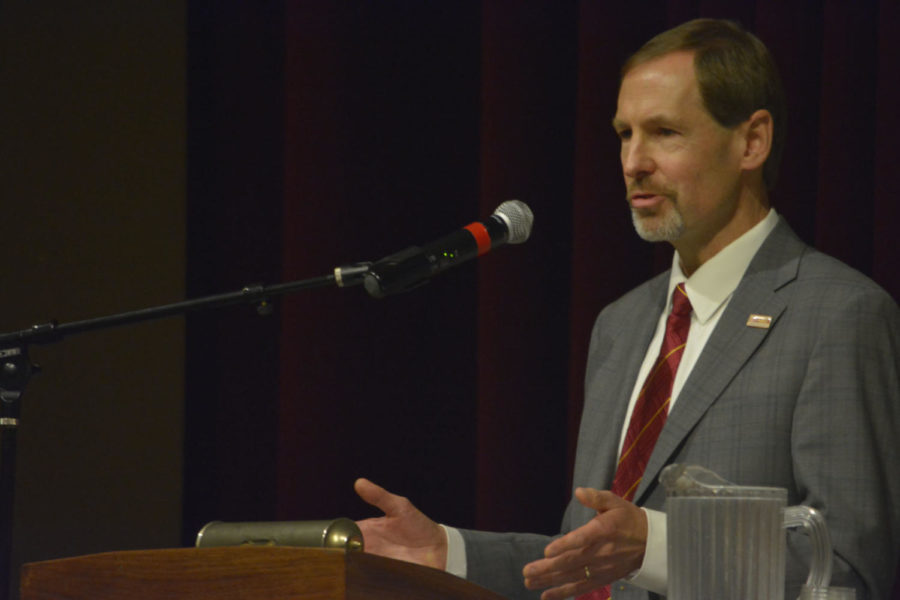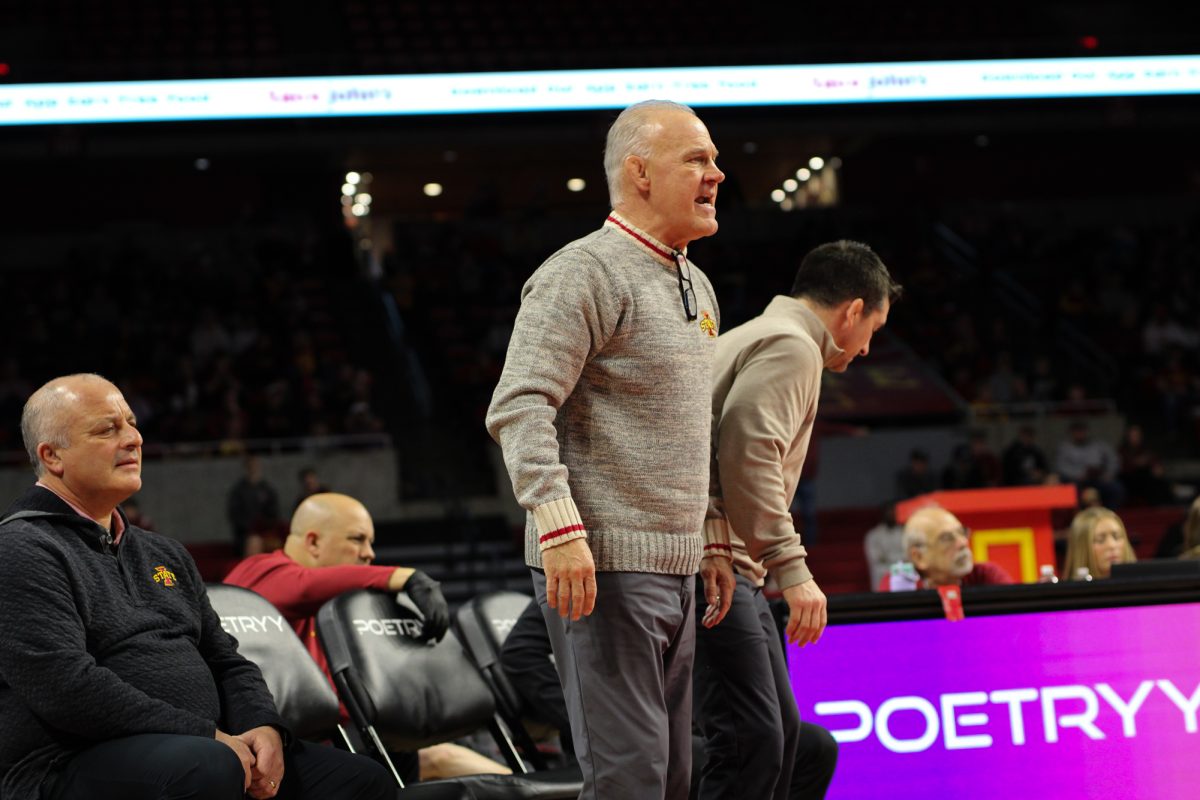- App Content
- App Content / News
- News
- News / Politics And Administration
- News / Politics And Administration / Campus
Record enrollment among topics discussed by the Professional and Scientific Council
Jonathan Wickert, Senior Vice President and Provost, speaks about Pat Miller, director of the Lectures Program, during the 60th anniversary celebration of the Lectures Program in the Great Hall of the Memorial Union on Aug. 30.
September 6, 2018
The Professional and Scientific Council at Iowa State gathered in the Memorial Union to discuss the current events among the faculty, staff and students at Iowa State.
Among the topics discussed were the enrollment numbers released by Iowa State on Wednesday.
According to an Iowa State press release, 34,992 students are enrolled at the university for the fall semester. Of those people, 29,621 are undergraduates.
In the fall semester of 2017, there were 36,321 students enrolled at Iowa State. Senior Vice President and Provost Jonathan Wickert said the change in enrollment can partly be attributed to a change in the methodology of enrollment counting.
Despite the reduced total enrollment rate from last year, there are still 6,047 new freshman enrolled this semester, up 103 individuals from last year.
The new students also have the highest average high school GPA for an incoming Iowa State class ever. This, Wickert said to the council, was something to be proud about.
“I am particularly excited that the academic qualifications for our freshman class are the highest they ever have been,” Wickert said. “This year we have the highest grade point average of entering freshman that the university has ever had…and that’s fantastic news.”
The average GPA score was 3.64 and the average ACT score was 25.1 among the students, according to the press release.
Wickert also discussed the uptick in multicultural and international enrollment this year, which is at 24.5 percent of the student body, according to the press release.
“Whether you count it as the number of multicultural students or count it as the percentage of the student body, both of those are records this year,” Wickert said. “And that’s something really to be proud of.”
Wickert also touched upon plans to close down research centers at Iowa State, which will be presented and decided upon at a meeting with the Iowa Board of Regents. The meeting will be held at the University of Iowa on Sept. 12 and Sept. 13.
“We will be closing several — five actually — research centers where their programmatic work and funding have kind of run their course,” Wickert said.
Iowa State will also be attempting to approve a split of the supply chain and information systems department in the College of Business into their own respective branches. There would be one department focusing on supply chain management and another focusing on information systems.
“Really, we have really one of the best supply chain programs in the world here at Iowa State University and having a stand alone department for that makes wonderful sense,” Wickert said. “Likewise, information systems, data analytics, business analytics, that is such in hot area right now…so that split makes a lot of sense.”
Pending approval from the Board of Regents, Iowa State will also be creating a new bachelor’s degree in cybersecurity engineering.
“This will be one of the first such degrees of its kind in the country,” Wickert said.
Wickert said the program will focus on designing secure software and hardware systems from the ground up.
“It’s going to turn out to be a very high-demand, outstanding program,” Wickert said.
In an effort to best maximize educational possibilities for students, Iowa State will potentially gain a new doctor of education degree.
“It is kind of surprising that we don’t already have an EdD degree, but we will have one after board approval takes place,” Wickert said.
Wickert also updated the council on the plan for a new $75 million veterinary diagnostic laboratory.
In order to proceed with the planning of the building, Iowa State needs approval from the Board of Regents, Wickert said.
The proposed $75 million building would be an 83,000 to 88,000 square foot facility located on the veterinary campus, according to an Iowa State press release.
Also discussed at the meeting was the current state of the campus facilities, led by Paul Fuligni, the associate vice president for facilities planning and management.
Fuligni titled his presentation “A State of Elegant Decline” and gave a macro-view assessment of the condition of campus facilities and maintenance work.
What he found was scary, Fuligni said.
Fuligni showed the council the sums of needed repairs for most of the major buildings on campus that were “backlogged.” A backlog is the cumulative amount of repairs on a facility that have been deferred due to insufficient funding.
For the fiscal year 2018, the backlog of deferred maintenance for the general fund buildings is over $436 million, Fuligni said.
“It’s staggering,” Fuligni said. “Last year we spent about five million dollars towards that and this year we’re going to spend eight million dollars towards that.”







